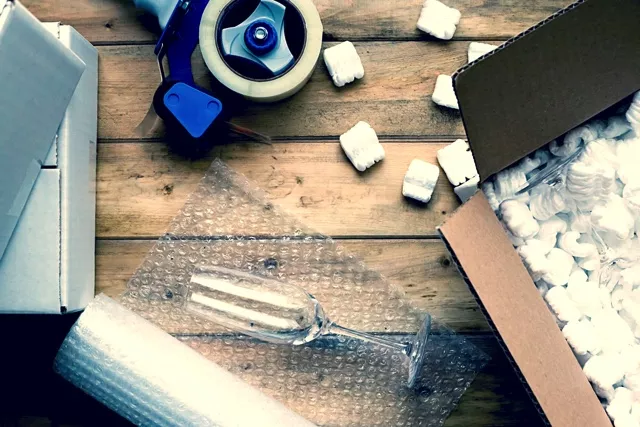Whether you just need a little extra space over the holidays or you’re downsizing your home, many people find themselves in need of a storage unit at some point – especially if you aren’t sure where you want to move next during these uncertain times. Depending on what you need to store and for how long, there are some crucial things to consider in choosing a storage unit and packing up your stuff. Avoid a storage unit that looks like the ones in the movies: dusty piles of forgotten stuff, where it’s impossible to find anything.
Your belongings should stay safe, clean, and not get damaged. So we’re here to share our best tips on how to pack your belongings for storage!
First: Be selective about what you pack in the first place.
To keep your storage unit organized and clean, it is important to only store things that you want to keep. Otherwise, you end up carting around (and paying for!) stuff that is only going to storage because you don’t want to deal with it.
Then, make sure you are packing items that can handle being stored. Anything that could deteriorate, rot, or degrade in any way shouldn’t be stored! This brings us to:
Decide what kind of storage unit is appropriate.
Most storage facilities have climate-controlled units available, accessible through an interior hallway. If you are packing antiques, fabrics or clothing, electronics, or anything else that would be damaged by exposure to heat, cold, or humidity, it is best to choose a climate-controlled option. These units are a bit more expensive but offer significantly more protection for your possessions.
Clean everything before you pack it away.
As you decide what to pack, make sure everything is as clean as possible for its time in storage. Be sure clothes and fabrics are clean and completely dry to avoid molding. Kitchen items should be cleaned of food residue and completely dried — make sure you check hoses and reservoirs! Vacuum any upholstered furniture, wipe wooden surfaces with wood cleaner, and treat any leather items that are going into storage. Dirt, grime, and moisture are not your friends when it comes to storage, especially long-term.
Invest in sturdy boxes.
It can be tempting to recycle some used boxes for your storage unit, but sturdy professional boxes or plastic totes are much more suited for the job. Remember that cardboard can break down or collapse over time. Any weaknesses in the boxes could result in a crushed box and smushed belongings. What’s more, plastic totes keep out pests, and moisture, and stack more easily!
Organize and inventory everything.
As you start putting things in boxes, conduct an inventory of everything you’ll be packing. Try to pack like items with like: kitchen items, linens, office implements, etc. Use an inventory app to keep a detailed list of what goes in each box. The FlatRate app, for example, stores the photographic inventory for each box, allowing you (or your movers) to easily retrieve things from storage without having to dig through your boxes. Label each box clearly; if your professional movers are bringing your items to storage, they will likely use a barcode system to keep track.
Disassemble and wrap furniture.
Disassemble any furniture that can readily be taken apart. Remove table and couch legs, and secure or remove any moving parts that could get damaged. Then wrap everything in moving blankets or old sheets to prevent scratches or dust accumulation. Mattresses should be stored in a mattress bag to prevent them from getting dusty or moldy.
Store clothing carefully.
Make sure your clothing is clean and dry before packing it away to prevent stains or odors from setting in. You could hang your garments in a wardrobe box or, if space is a concern, vacuum seals them in plastic bags. If you choose the latter option, it is extra important to ensure that everything is completely dry to avoid trapping moisture in the bag!
Don’t overpack your boxes.
Even though it may mean you need a larger unit, don’t cram too much into your boxes. Overpacked boxes are not only difficult to move, they can result in damage to the items within. So pack them full to avoid cardboard box collapse, but not too full!
Label anything you will want to retrieve shortly.
If you know you’ll want some of your items taken out of storage before others, label them to be kept near the front of the unit for easy access. If you are working with a team of movers, they will be able to retrieve and deliver those items easily without needing to disturb everything else!
All in all, remember that storage units are intended to hold things that you will need someday! Prepare everything in such a way that you’ll be happy to retrieve it down the road: clean, functional, and ready to use!
